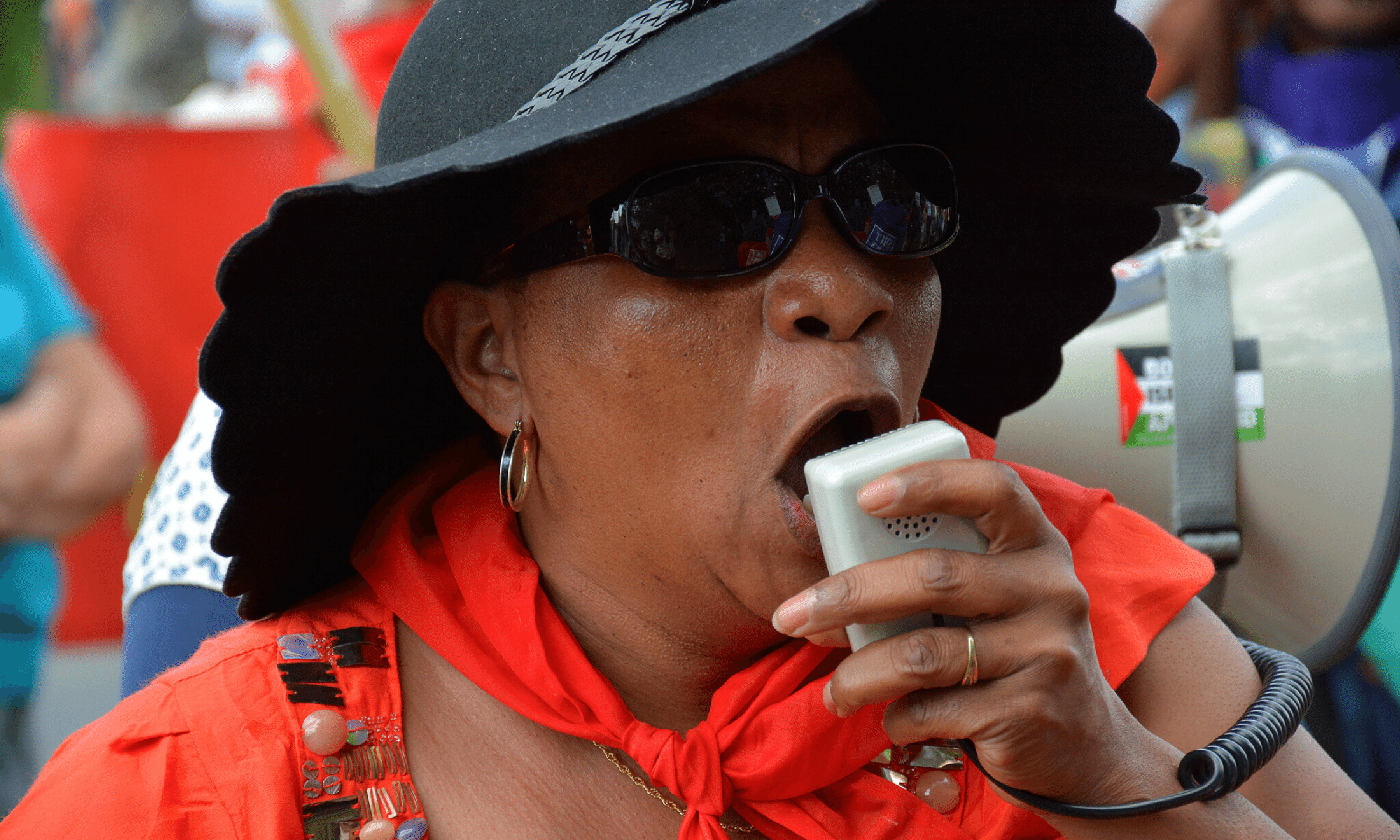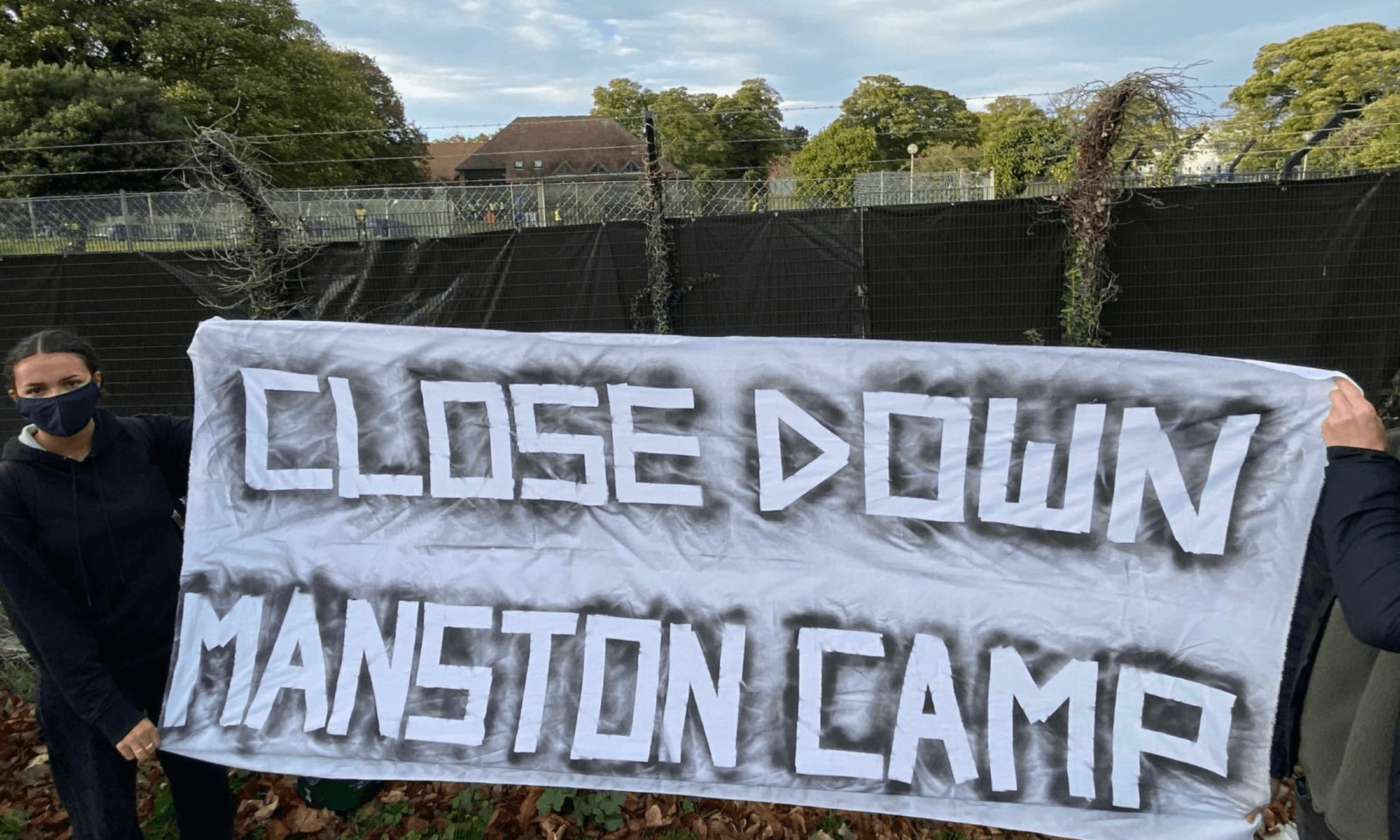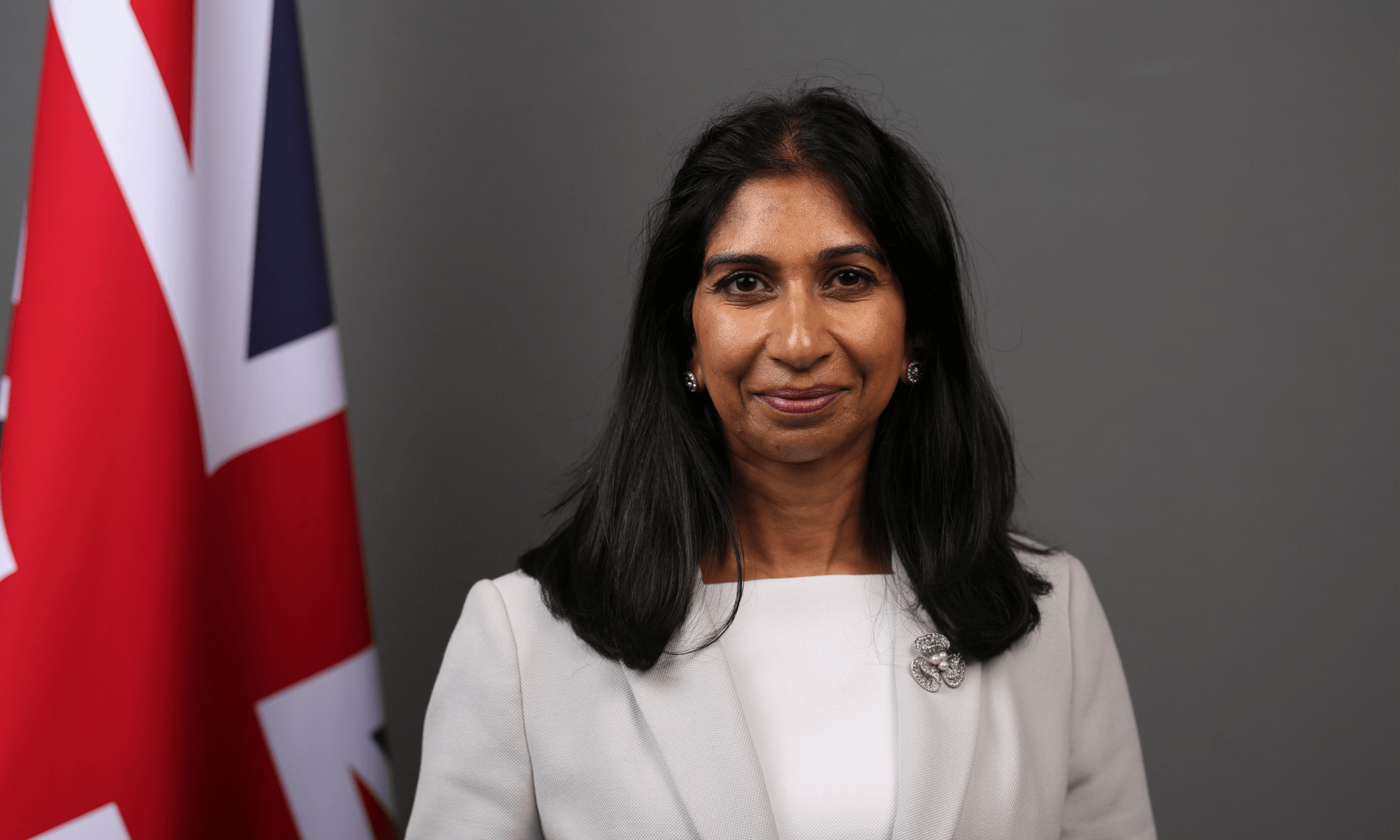
EYE DJ/Flickr
How we can all stand up and fight the ‘Anti-Refugee’ Bill
gal-dem speaks to the director of Women for Refugee Women about how we can all do our bit to challenge the Nationality and Borders Bill.
Shahed Ezaydi
06 Jan 2022
Last month, the Nationality and Borders Bill – also dubbed the ’Anti-Refugee’ Bill – passed its third reading in the House of Commons and now awaits its passage through the House of Lords. It’s a piece of legislation that will see tighter restrictions on safe and ‘legal’ routes, offshore processing, the introduction of the one-stop process, and the creation of a cruel and draconian two-tier system of refugees and asylum seeking people based on the method of arrival into the UK. Those arriving through any other means than official government routes will be viewed as inferior and effectively criminalised and punished for the journey they’ve taken, with an increased likelihood of detention and deportation.
Women for Refugee Women (WFRW) has been central to organising to challenge the government on this Bill and raising public awareness of its harmful impacts. gal-dem sat down with Alphonsine Kabagabo, director of WFRW, to talk about their work in supporting women seeking asylum and how they’re challenging the Nationality and Borders Bill.
gal-dem: Can you tell us about the work Women for Refugee Women are doing to support refugee and asylum seeking women?
Alphonsine Kabagabo: We’re all about giving women the opportunity to build a real community of sisterhood around them, people who come from similar backgrounds or are seeking asylum and are just not being understood. Connection is so important. We not only provide English language support but also other skills including drama, writing, and music so that women also have a safe space to express themselves however they choose to. It isn’t just about integrating into the community but providing people with opportunities to feel confident again.
Most of the women we support have been trashed by the immigration system in this country and want to speak out about their experiences and share their own stories. And so, Women for Refugee Women ensures that anyone who wishes to speak out is properly supported and able to communicate their experiences in the way they want to.
The whole vision and mission of Women for Refugee Women is to make sure there is an asylum system that is fair and accessible, one that puts people who seek asylum at the very heart of it. And this forms the basis of our campaigning. We want the government to really listen and understand the many problems that the current system has, but sadly it’s not listening. But that doesn’t stop us – if anything, it drives the fire to keep us going. As well as speaking to policymakers and the media, we also ensure we’re speaking to different communities – especially those who are outside of migrant justice – in order to push back against the harmful narratives around refugees and asylum seeking people.
“Most of the women we support have been trashed by the immigration system in this country and want to speak out about their experiences and share their own stories”
Do you find that many of the women that you support through your activities then want to go into campaigning?
So many, yes. I honestly think that’s the most exciting part because they feel empowered to be the ones changing the system, challenging the public, challenging the policymakers. We have a forum where most of the women are training in communication, public speaking, and media appearances. We want to give them the knowledge and tools to be able to speak out against this broken system and share their own experiences with the world.
The Nationality and Borders Bill has now passed its third reading in the House of Commons. What are the harms in this Bill facing refugees and asylum seeking people, and especially for women?
Most of the women in our network are coming to us because they’re leaving their homes mainly due to being subjected to gender-based violence. But through this Bill, the government is saying it’s only through their resettlement schemes that people can be supported. Most of the women fleeing persecution are not having their experiences of discrimination seen or heard by the authorities.
We’re particularly concerned that the Bill will discriminate against women who have survived sexual violence and trafficking and that it’s going to become that much harder for women to be recognised as refugees or asylum seeking people. A recognition that would then allow them to access financial support, housing, and the ability to settle in this country and rebuild their lives.
The two-tier system is another major challenge. The way people arrive in the UK will now dictate how they will be supported, based on if they came via a resettlement scheme organised by the government. Schemes that aren’t even reaching their own goals or standards with so many being left behind. Very few people have waited for the government to come and ‘rescue’ them, but with this Bill, they will now be punished for the route they’ve taken.
“Very few people have waited for the government to come and ‘rescue’ them, but with this Bill, they will now be punished for the route they’ve taken”
The other aspect of the Bill that’s extremely worrying is the one-stop system, where people will now have to provide evidence of violence or trafficking as soon as they can, all in one go. Most of the women we work with have been traumatised, not only because of what happened to them, but also from the journey they’ve taken, where many of them are violated again.
Before women can even begin to share their experiences, they need to be supported with their mental health and gain an understanding of an already difficult to navigate asylum system. A one-stop system will push many women to be re-traumatised once again by a government who doesn’t particularly care about what’s happened to them.
One of the most upsetting and angering parts of this whole Bill is listening to the Home Secretary, Priti Patel, defend it behind the veil of women’s rights. That it’s a Bill that exists to protect women. But it most certainly does not. It’s in fact doing exactly the opposite. Patel knows that the public will be sympathetic to such a cruel Bill if she puts women’s rights at the forefront of it all. This Bill isn’t about protecting people who are seeking safety, it’s about protecting borders.
Could you tell us about the campaign you’ve launched to challenge this Bill?
We started with writing to Priti Patel, a letter that was supported by over 50 organisations supporting women, outlining exactly how this Bill would have a devastating impact on women. We’ve also been organising rallies and writing a lot of policy briefings, but the main part of the campaign now is talking to and getting the right briefings to as many MPs as possible, from all parties. We’re also supporting the women we work with – and everyone who can – to write to their local MPs. We’ve been providing letter templates and writing workshops so that we can really get the message out there to the people who can actually make a change and challenge those in government directly.
That’s the support we urgently need from people, to continue lobbying MPs, especially now when Covid-19 has become the most pressing issue. We’re concerned that this Bill will fade into the background and won’t receive the attention and scrutiny it needs before it passes through the House of Lords in January. We also want to encourage people to spread the message on social media too, so that we can reach as many people as possible, especially those who may not have been aware of this Bill and the harmful impacts it will have on some of the most vulnerable communities in our society.
“This Bill isn’t about protecting people who are seeking safety, it’s about protecting borders”
What do you think it will take for us to see an end to the Hostile Environment?
That’s a big question! Honestly, I don’t think we will see its end soon. But what it really takes is people with compassion. We desperately need more compassion. If we can change the toxic and harmful narratives around immigration and get people to really understand that all humans have the same rights, then we wouldn’t have a government who are set to do the exact opposite. It’s about people putting themselves in another’s shoes. How would I feel? What would I do? It’s only then that we can properly begin to dismantle the Hostile Environment.
Here are some actions you can take to stand against the Nationality and Borders Bill:
- Download the WFRW explainer that outlines the five ways the Nationality and Borders Bill threatens women.
- Write a letter to your MP using this letter template created by WFRW.
- Join their social media campaign on Twitter to #TellPritiPatel with this sample tweet.

Tragedies like the Knowsley riot and Brianna Ghey’s murder show scapegoating minorities is a deadly game

All the bad bills the Tories are pushing through this year

Shut down Manston camp, and take the rest of the UK’s violent immigration system with it






